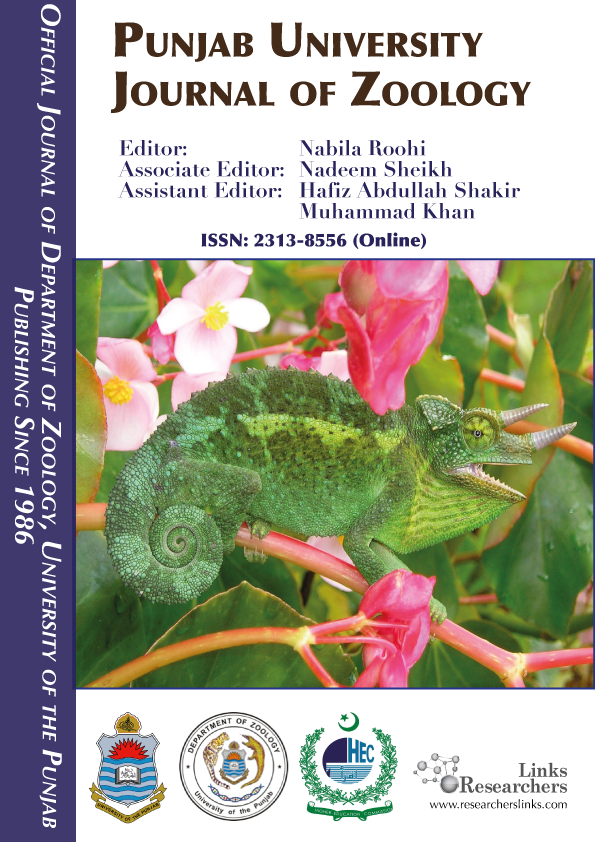ABSTRACT
Hadda beetle, Epilachna vigintioctopunctata (Coleoptera: Coccinellidae), is a cosmopolitan phytophagous pest and causes severe damage to various cucurbitaceous and solanaceous vegetables. This laboratory work was aimed to determine the comparative toxicity of three differential-chemistry insecticides (i.e. emamectin benzoate 1.9 EC, spinosad 240 EC and lufenuron 50 EC) and the aqueous extracts of three local plant species (i.e. Eucalyptus camaldulensis Dehn., Citrus limon L. and Azadirachta indica A. Juss) against the grubs and adults of E. vigintioctopunctata. Three concentrations of each synthetic insecticide (i.e. 2.5, 2 and 1.5%) and botanical extract (i.e. 10, 7.5 and 5%) were bioassayed using standard leaf-dip method. Results revealed that spinosad and 10% A. indica aqueous extract exhibited maximum mean cumulative mortality of hadda beetle grubs (i.e. 84.1 and 73.4%, respectively) and adults (i.e. 67.4 and 58.8%, respectively) recorded at 5th day of exposure. Combined application of both these effective treatments enhanced their toxicity to E. vigintioctopunctata and caused 88.9 and 77.6% cumulative mortality of grubs and adults, respectively. Based on overall study results, the combined application of spinosad and A. indica extract is recommended to local vegetable growers for effective integrated management of E. vigintioctopunctata and other foliage-feeding beetles.
Novelty Statement | This study demonstrates the synergistic action of the binary combinations of biorational synthetic insecticide (spinosad) and botanical extract (Azadirachta indica) which can be effectively used against the infestations of hadda beetle Epilachna vigintioctopunctata and other foliage beetles.
To share on other social networks, click on any
share button. What are these?







